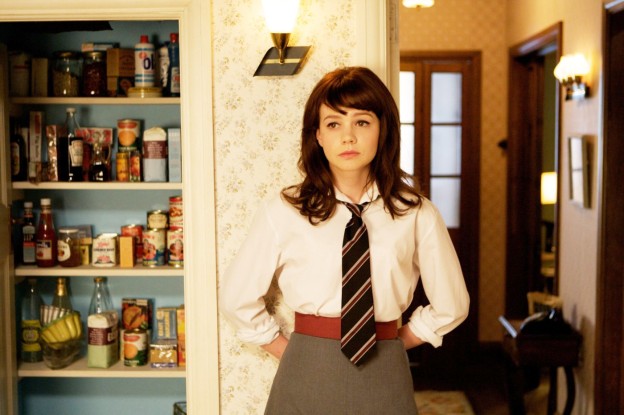 The British tend to take great pride in their education system. I distinctly remember at the age of about nine being drilled in the wide and varied distinctions of British schools: “We had laws to ensure all children got an education, we had the three R’s, we had free schools, we had church schools. We could educate each and every child to death.”
The British tend to take great pride in their education system. I distinctly remember at the age of about nine being drilled in the wide and varied distinctions of British schools: “We had laws to ensure all children got an education, we had the three R’s, we had free schools, we had church schools. We could educate each and every child to death.”
That, however, was in Victorian times. Since then there has been an influx of creative people who do nothing but criticise the British Education system (Thank you Pink Floyd). Yet often these self-same critics saw it through to the end. They chose to stay in the establishment they hated, an establishment they did not believe was suited to educate young people. An Education tells the story of another of these potential rebels. A cautionary tale to those threatening to go against the flow of a country.
Carey Mulligan plays Jenny, a bright young girl who is destined for Oxford University. Her parents are far more keen for her to do this than Jenny herself. She dreams of a path less travelled. Her dissatisfaction with this position is painfully evident from her small rebellions, her awkward French interjections in a cut-glass accent and the thrill of being allowed to listen to her own music. Poignantly, Jenny finds herself studying Jane Eyre while in a whirlwind affair with an older man. A cautionary tale within a cautionary tale. Both tales telling young girls not to throw away their lives on such uncertain things as love. Yet in both cases, they would have been success stories were it not for the faults of the men.
These stories are a way of keeping them in the system for as long as possible. There are generations of stories and teachers saying the same things. Stay in school, get good grades, this is your passport to life. What An Education shows us is that it is only through living a little ourselves that we can appreciate how important learning truly is. However this is the eternal paradox which Jenny discovers the hard way. The very life experiences that show her the necessity of education are denied to her by the education system.
Once more we see a conflict in generations. A post-war teenager, desperate to be free and happy, comes face to face with the old values of her parents and teachers. Unfortunately she is too old to blindly listen to them and has too little experience to see the reason in their beliefs, which she does eventually concede. As they say, one can only learn from one’s own mistakes. As much as you can criticise a system it is unwise to reject the only accepted currency. At the very height of her freedom Jenny has to concede defeat and crawl back to the very establishment that has shunned her in order to continue her life. She is turned away at all counts, due to fear and judgement, two things she has lived free of for months while having her affair.
Yet even when everyone genuinely did have Jenny’s best interests at heart she was lead astray by short term indulgence and happiness at the expense of her future. To regain what she has “lost” as a result of this happiness requires consulting the people who she laughed at. Eventually the only person left to her is a bespectacled and lifeless teacher. The older version of the spotty specky Oxford girls she didn’t want to become. One more child caught in the trick of youth, she becomes an adult and finds that she has spent every day of her life sacrificing present happiness for an unknown future. While Jenny’s teachers assure her that four years at University is nothing, she cannot help but feel that the future she dreams of can only recede further as each year presents more time that must be sacrificed. Jenny gets to Oxford, but at what price? From dating a man who showed her everything she wanted, she now must date “boys” and pretend her brush with real life never happened. Such acquiescence is reminiscent of Orwell’s 1984 dystopia. It’s not a system that the protagonist agrees with, but it is the system he must live with and so he enters willingly, but is he happy? Youth is not wasted on the young, it is stolen from them by the rat race they are placed in as soon as they reach schooling age.



